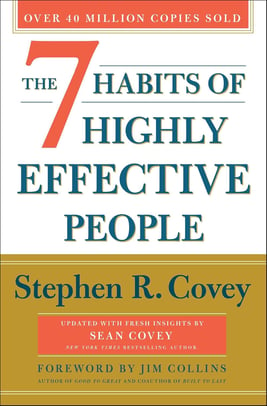GREG HOLCOMBE
Chief Information Officer at SuuS
Can you please provide a little introduction about yourself
I lead technology and information security for an innovative company made up of a team of experts with a proven track record of delivering success for banks in the area of mass personalization, customer conversion, improved customer loyalty, and increased revenues. Our goal is to provide a significant boost to our customers’ marketing and product-approval process, and we have intellectual property and a data advantage over financial services’ internal teams such that we can produce great outcomes that our customers and competitors cannot produce on their own.
I currently live in Raleigh-Durham, NC, close to my undergraduate alma mater Duke University. I am proud to continue to serve my university’s community by being a member of the Duke Alumni Triangle Board.
What has your journey to your position been like? What path have you taken?
My career journey really started in junior high when I was the first seventh grader ever allowed to enroll in a computer science course at my school. I know that sounds crazy now. My parents believed enough in my brother and I to invest in an Apple IIe for our home, which was not cheap in those days. Ever since then, I have spent an unfathomable about of time at keyboards – programming, learning, playing, and communicating.
I majored in Computer Science & Economics at Duke because I believed that computer science needed to be applied to real-world problems. One could argue that economic theory is not real-world, but it really made a difference to be able to take a multi-disciplinary problem solving approach throughout my whole career. I continued this approach when I got an MBA at UC Berkeley where I met some truly innovative thinkers.
Several of my biggest career milestones occurred at Barclays Global Investors, where there was a culture of trust, and where the leaders of the organization put me in positions that drove my growth because they believed in me. At that company I was put in charge of the portfolio management systems running the largest institutional index equity funds in the world, for which I had no domain expertise, and later on they allowed me to run the hedge fund and derivatives data team at a time when derivatives were exploding in the investment world. Again with no real domain expertise. The people-first growth mindset has been a part of my core value system ever since then, and I hope that every team I have led since then can attest to that.
I am also one of the few experienced hires who worked at Bridgewater Associates for four years and walked out on their own terms, which I believes speaks a lot about my values and resilience.
Has it always been your vision to reach the position you’re at? Was your current role part of your vision to become a tech leader?
Yes. When I started my career my goal was to become the CIO of a small- or mid-sized company, but I cannot say that it has been a straight line to get here. In fact, if I’m being honest, I led that dream fade somewhere along the way. What I adopted instead was a servant-leader mentality and a goal to strive for excellence in achieving business goals.
This requires a great deal of humility, intentional listening, creative solutioning , and putting team members first. Ultimately I think these characteristics of my leadership style are what brought me back to this role.
Have you had a role model or mentor that has helped you on your journey?
Throughout my career, I’ve had a few role models and mentors, though not in the traditional sense. The most significant influences have been the people who believed in me and supported what I was striving to The biggest influence on my journey came through the culture that was set by the leaders at Barclays Global Investors. Really, everyone at that firm was a role model. We pulled together as a united team with common goals, and we leveraged each other’s strengths to create team synergies.
The whole IT management team was exceptional – Paul Stevens, Craig Squires, Mike Kelley, Mark Newton, Andrew Meisel, Dan Hagelin, and more. But it wasn’t just them – they fostered trust and high aspirations in all of us, and the whole group of technologists I worked with at BGI has not been matched anywhere else I’ve ever worked or seen.
How do you see the role of the technology leader evolving over the next 5 years?
The biggest change that is occurring is around artificial intelligence and how to harness it in the right ways to achieve business outcomes. Boards and Executive Leadership Teams will be looking to CIOs and CAIOs to give them the vision and the path forward. I believe that successful technology leaders will step in to provide big, audacious, inspirational visions about how AI, automation, and low-code can impact and transform their company and the way that people work. And also a practical path for achieving it, with incremental gains along the way.
What skills do you think leaders of the future will need in order to thrive?
The most important skill is team building – understanding who you need surrounding you, hiring the best talent, and nurturing that talent with coaching and whatever resources they need to be successful.
The next most important success factor is curiosity and a drive to understand how things really work without accepting a simplistic explanation. The way things are evolving requires constant investigation into what things mean, how they work, how they can be applicable. And collaborating with others to get a fuller, more accurate picture.
And I’m going to throw in SQL as a key skill. Not because SQL syntax is so important, but because if you’re really good at SQL it means you understand data, how data relates to other data, and logical ways in which to get to answers. It could be that SQL itself becomes obsolete in the coming years, but that understanding of data, relationships and databases will never be obsolete.
Is there anything in particular that you would still like to achieve in your career or what is the next step on your journey?
I would like to help organizations transform into almost-exclusively business-focused entities, where business people themselves design and deliver their own technology solutions, and IT is there for support, guardrails, and oversight. I believe that this is entirely achievable in the next 5 years with the current maturity of low-code tooling and the rapid evolution of AI-enabled solutions.
What has been the biggest challenge you've faced in your career so far, and how did you overcome it?
My biggest challenge came near the end of my time with Barclays Global Investors, and the challenge was my ego and lack of honesty with myself about my strengths and weaknesses. Some things transpired, I didn’t get a role that I thought was automatic for me, I got some feedback that I did not expect, and I enrolled in a Franklin Covey assessment and coaching package. I remember taking the assessment and getting the 360-degree feedback, looking at it, and just breaking down and sobbing. It wasn’t who I thought I was, and it certainly wasn’t who I wanted to be. Quite frankly, I could not put my head around it for a very long time.
Later, when I joined Bridgewater Associates and was subjected to their unique brand of feedback and transparency, I spent the time to understand myself and how other people saw me. I lived an authentic Bridgewater experience, and I came out of it a better person and so much more (humble yet) confident in myself. Bridgewater saved my career.
"The most important skill is team building – understanding who you need surrounding you."
How do you measure and communicate the value and impact of technology initiatives to other business leaders and stakeholders?
What has been your most significant achievement or proudest moment as a technology leader?
On Day One I met with the most dissatisfied user, listened to her grievances, and convinced her to be our primary point of contact as well as have daily meetings with us. In those daily meetings, we only had two agenda items: demo what we did the previous day and get marching orders for what we needed to deliver the next day. It was hard, but within 2 weeks, we started seeing progress and we had turned our biggest hater into an advocate.
There is so much more to the story, but I’ll skip ahead 12 months and tell you that I turned over 100% of the team during that first year, and focused on recruiting, training, and retaining the best talent. After that first year, we were considered one of the top-performing teams in the company and had become a talent magnet.
This was one of my highest achievements in my career, and as a result, I have been asked to turn around multiple poor-performing teams at multiple organizations, and I’ve always been successful in doing so.

A big thank you to Greg Holcombe from SuuS for sharing his journey to date.
If you would like to gain more perspective from Tech Leaders and CIOs you can read some of our other interviews here.
June 5, 2025


